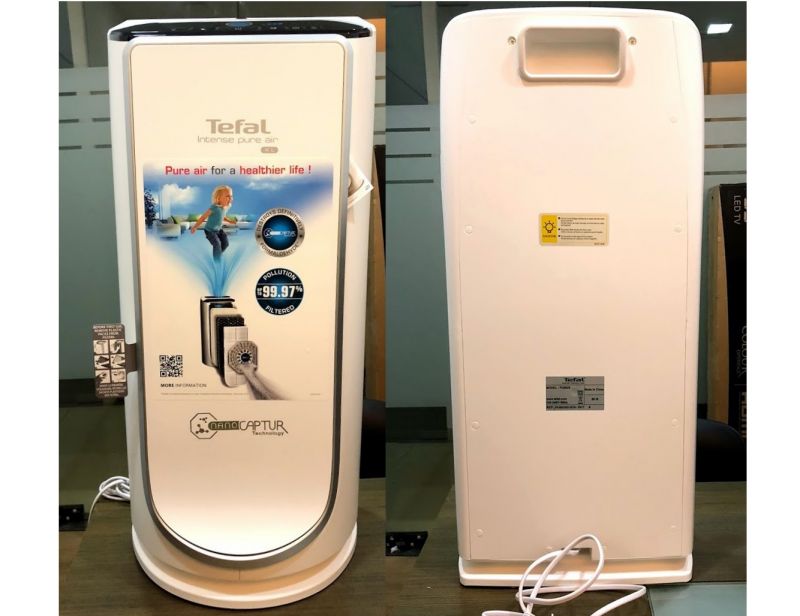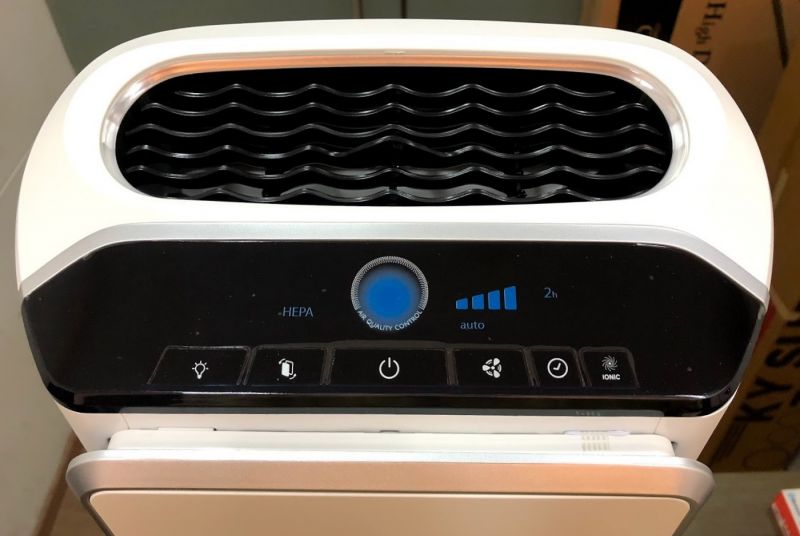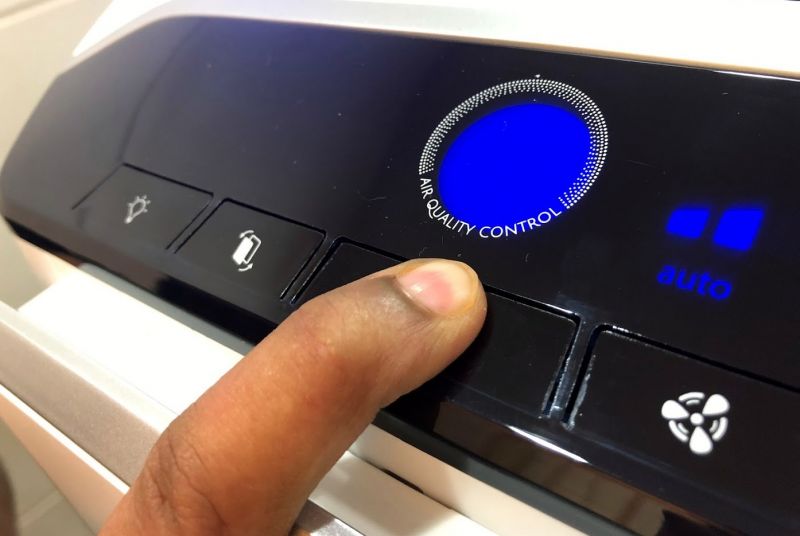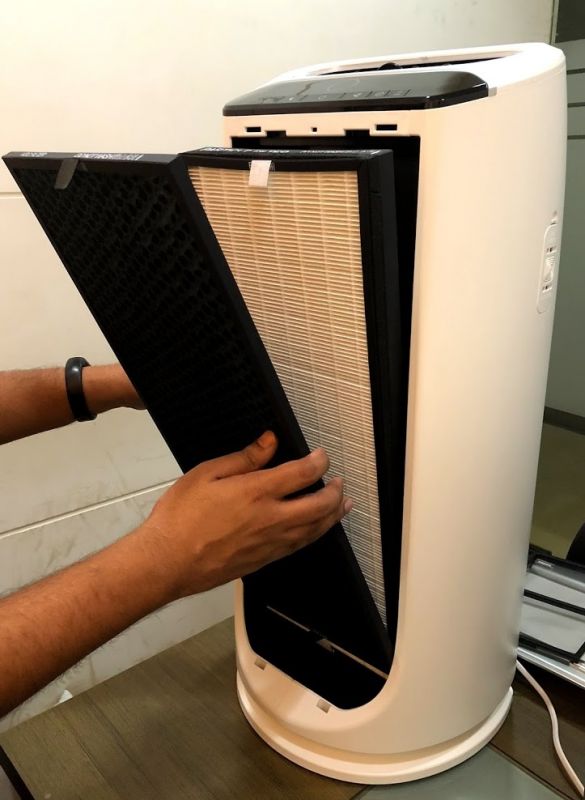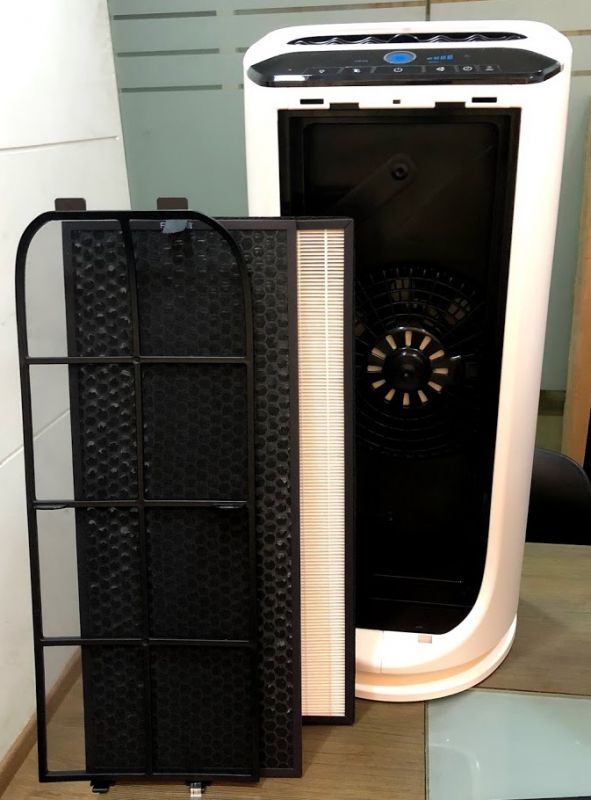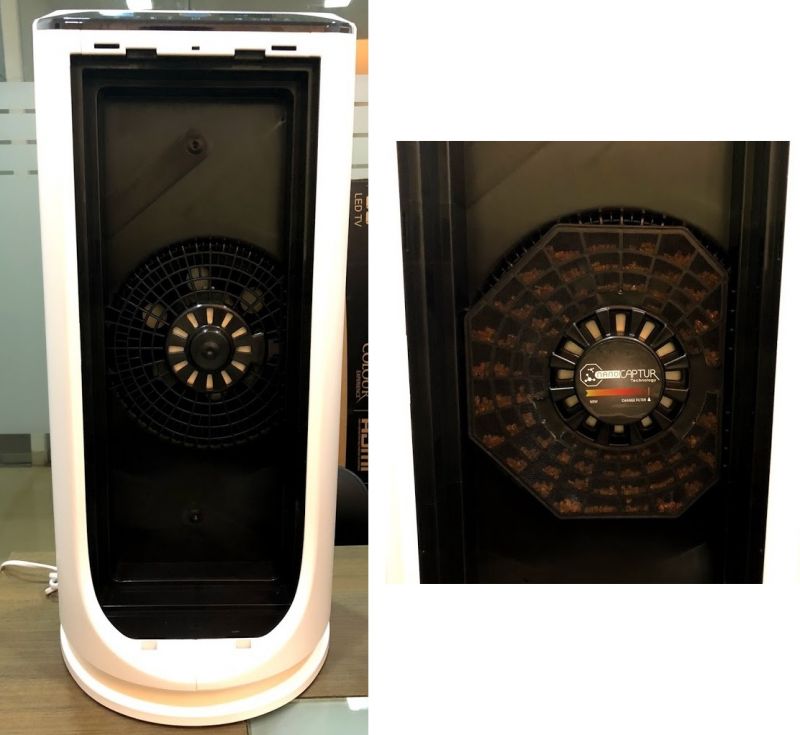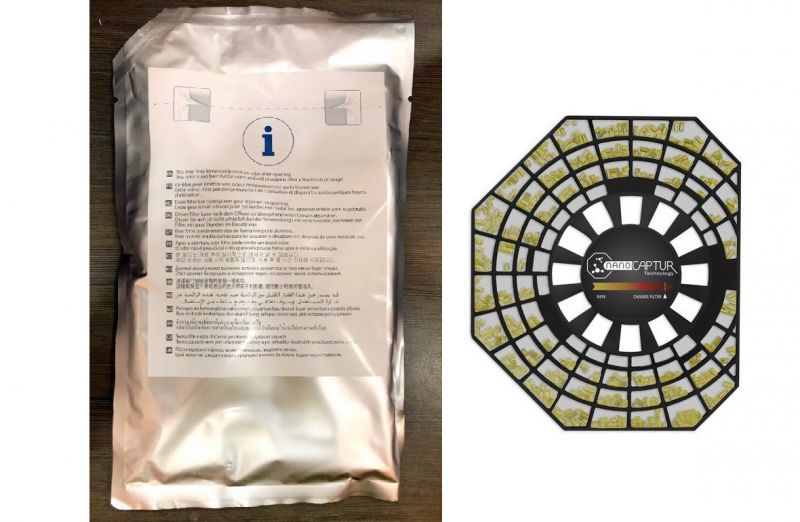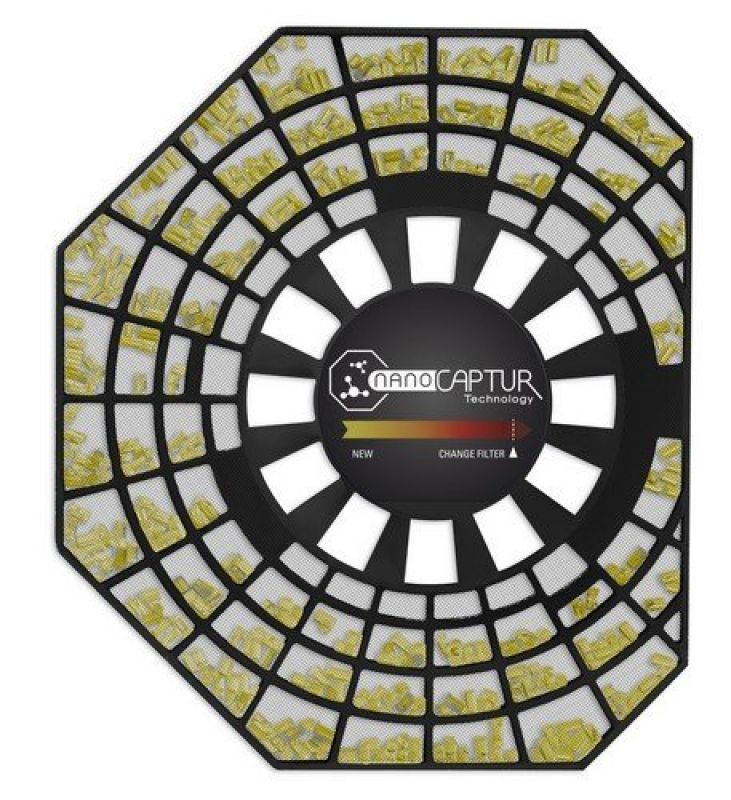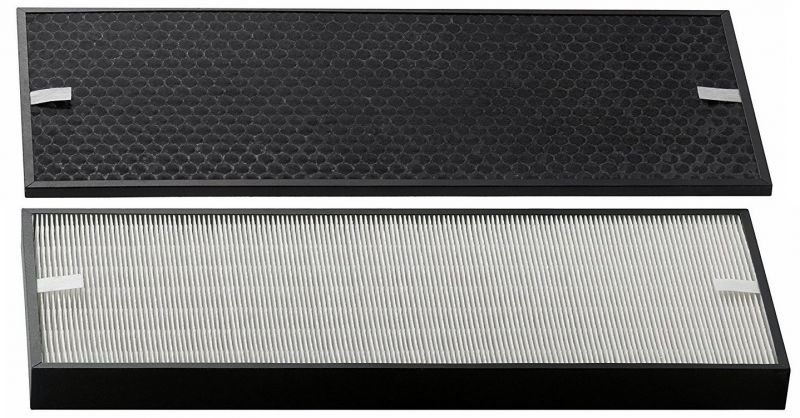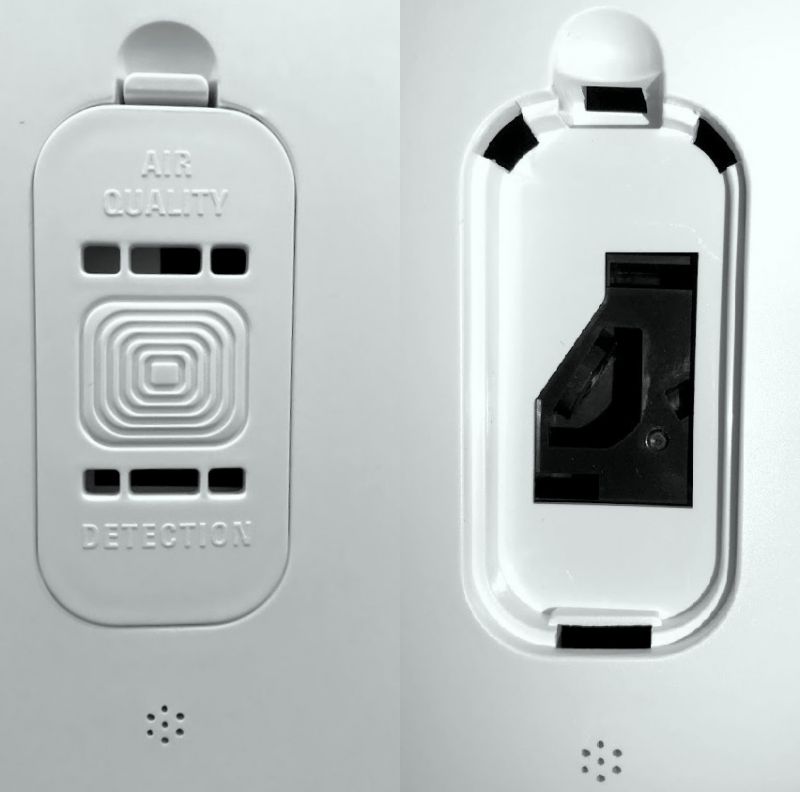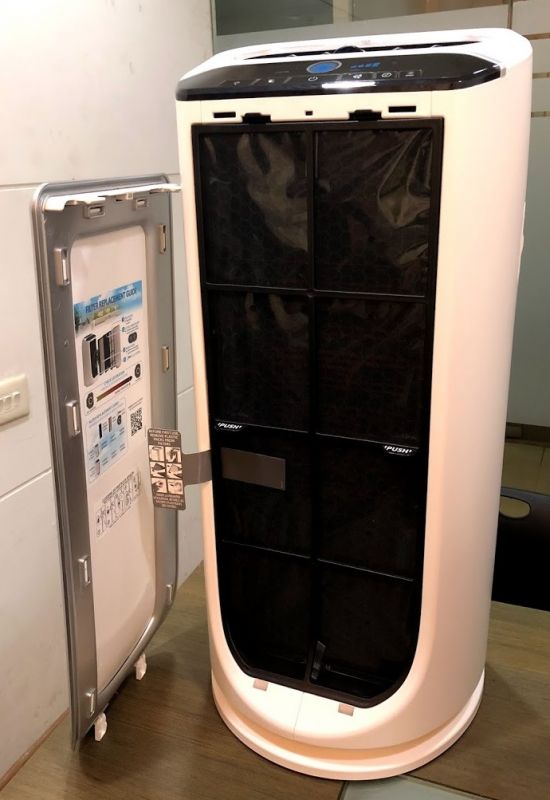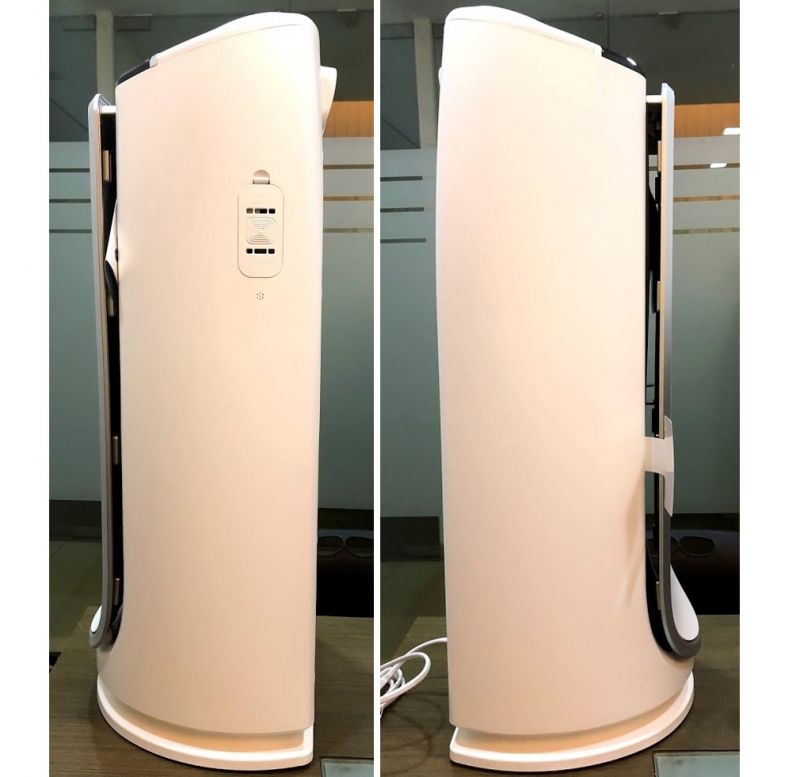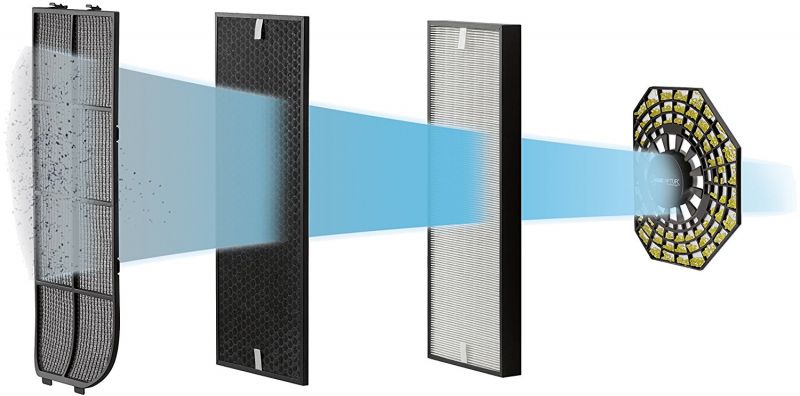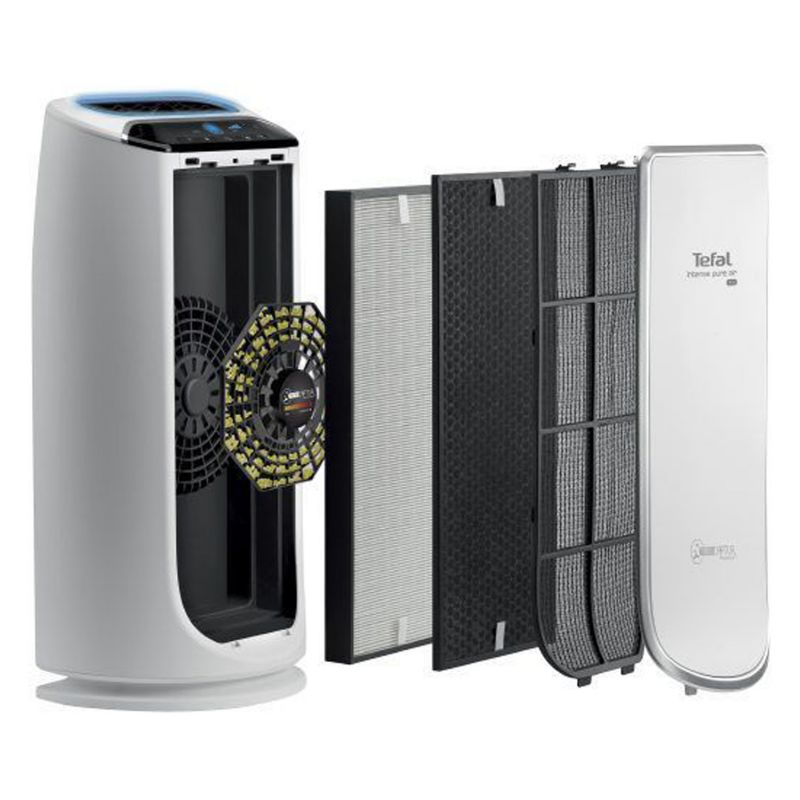Tefal Intense Pure Air XL review: 'Watch' the air get pure

The quality of air around the world is slowly degrading, and thanks to numerous polluting sources, we are soon seeing a rise in health problems. While the outdoor air is surely a concern, you should know that the indoor air in your home is equally unsafe. Suspended particles inside homes are considered an equally higher threat. Dust inside homes usually settle around furniture and unreachable corners, and add to that the smoke that is let out from the kitchen during cooking. These itself are good enough to affect the health and comfort of occupants, and even worse, children at home.
Health effects from indoor air pollutants could be experienced immediately after exposure or, possibly, years later. These include irritation of eyes, nose and/or throat, headaches, dizziness and even fatigue. While these can be treated easily, exposure to some harmful pollutants can also lead to asthma and even cancer. While nothing can be done (as easily, and soon) with outdoor pollution, the indoor air pollution can surely be reduced or tackled.
Indoor air quality can be maintained and reduced by installation of air purifiers. These appliances help filter the air inside homes/rooms and release pure air that is clean and safe to breathe. While there are numerous air purifiers available in the market, choosing the right one for your home is essential. Air purifiers cost upwards of Rs 10,000, and it all depends on the model, type and the filters used within.
While older air purifiers simply incorporated a mesh or filter to capture suspended dust particles, modern counterparts go ahead with technology to filter out harmful pollutants and release ions into the air for a better indoor air quality.
We have heard about air purifiers in Indian from various brands such as Xioami, Samsung, BlueAir and a lot more. And here is Tefal that adds to the brand list. Tefal is a French cookware and small appliance manufacturer owned by Groupe SEB India. Its name is a portmanteau of the words TEFlon and ALuminium. The company is known for creating the non-stick cookware category. The brand set foot in India exactly a year ago with the launch of air purifiers and we managed to get our hands on a Tefal Intense Pure Air XL unit. The purifier comes in two variants — a regular that is aimed at smaller sized rooms such as a bedroom, while the XL, which is for larger halls and alike.
The Tefal Intense Pure Air XL is built with a slim design that stands around tall 2.5ft tall, approximately 1.2ft wide and weighs around 7.5kg. The appliance has a simple function in its entire lifecycle — suck in and release air. At first glance, it looks more like a conventional air cooler, but the unit can do more wonders than we think. The entire body is made of plastic and the unit we received was white with a few highlights of silver and black. The chassis looks tough, but the white exterior is bound to leave marks if not cleaned regularly.
The XL has a unique design that is not similar to most conventional air purifiers out there. While others have the air intake area either upfront, on the sides or all around it, the Tefal Intense Pure Air XL has vents that pull in the air to be filtered from little vents that are seen on the sides of the front panel. We found the idea unique as most air purifiers cannot be kept in tight spaces or blocked by furniture, but this one gets a bit of relief.
The air vent faces upwards which shoots pure filtered air into the upper area of the house/room. The vent has guides that can be manually adjusted to direct the clean air to any upward direction. Sadly, the guides are made from flimsy plastic, which threatens to break if used with a heavy force. However, it should not be much of an issue as the guides will e rarely touched.
The control panel resides on the top, which is designed at an angle for easy operation by kids. The control panel sports a few indicator LEDs apart from six buttons. One is for power, while others are for various controls such as fan speed, mode, timer, ionizer and filter change. Sadly, none of these buttons is marked properly and only feature an illustration as for what they do. It could be pretty confusing for someone who is new to using gadgets — especially elders. The LED indicators are used for denoting the fan speed and quality of the air in the room.
The front panel is made from a strong and firm plastic panel, which is placed in front and locked on using strong magnets. A simple pull from the top portion reveals the business area of the air purifier.
Behind this door is where the entire action. Behind this door are three filters —a pre-filter to capture or filter out larger dust particles, an activated carbon filter for smoke and odours just behind that and next, a HEPA filter to capture tiny particles as small as PM2.5. While the pre-filter can be cleaned with regular water, the carbon and HEPA filters need to be replaced every 1 – 3years, depending on the condition of the room. Using the purifier in dusty and open areas would result in filter changes as early as 1 month too. The active carbon filter costs Rs 1,999, while the HEPA filter will set you back by Rs 2,499, which is a recurring cost above the purifier appliance itself.
Behind all three filters is a NanoCaptur filter, which is the company’s patented technology for high-level filtration. This filter is mainly used for permanently destroying Carcinogenic Formaldehyde infestation inside homes. It consists of minuscule granules made of a glass-like nano-porous material that has thousands of pores in a single grain.
The surface of these pores are coated with a probe molecule, which forms a chemical reaction when it comes in contact with Carcinogenic Formaldehyde molecules which is irreversible, ending in the total destruction of formaldehyde. Regular air filters usually absorb formaldehyde from the air but don’t destroy it, which tends to get released back into the air later when the air purifier is not operational.
With NanoCaptur, this threat is next to zero, using which, Tefal claims its air purifiers using the technology are 99.97 per cent efficient in removing indoor air pollution, hence creating a safer, and healthier environment. This technology is said to be tested and certified in an external laboratory in November 2014 and in comparison to main competitive filtration technologies.
The NanoCaptur granules (filter) also feature colour changing, which helps denote the life of the filter and levels of purification being done. The filter’s granules change colour from yellow to red, and later to dark brown, depending on the amount of formaldehyde being filtered or captured. Yellow is when it is newly installed and dark brown means it is saturated and needs to be changed and cannot filter anymore.
So you need to keep an eye on this colour every two to four weeks to know the levels of formaldehyde in your indoor air. The NanoCaptur filter comes sealed packed when new and releases a mild stink when freshly installed. Running the air purifier for a few hours will slowly diminish this smell completely, which is normal and safe. So don’t be alarmed when you witness a stinky room when you initially turn on a new Tefal air purifier in for the first time.
The Tefal Intense Pure Air XL shows its efficiency in a room as large as 800sqft — which is good enough for an average-sized living room or a master bedroom. It detects the pollution levels within the room, using sensors mounted on the right side of the unit, and automatically adjusts the fan’s speed to help purify the air as fast as it can.
It can detect smoke and other pollutants such as dust, gas, and alike, and speeds up the fan to help purify the air as fast as it can. One can also manually adjust the fans by up to four speed levels. The noise created by the fans at full speed is a maximum 52db, while in quiet more it is as low as 28db, ensuring that the air purifier is not announcing itself in the house. Lastly, it has a Clean Air Delivery Rate (CADR) for dust and pollen at 310 m3/h.
As for cleaning, the pre-filters need to be cleaned with regular soap and water, once every 2 – 4 weeks. The active carbon filter must be replaced when the Odor indicator light lights up on the control panel or at least every year. The HEPA filter must be replaced when the HEPA indicator light lights up or least once every 3 years. Lastly, The NanoCaptur filter must be replaced according to the saturation indicator. You should check the degree of saturation every 6 months. The cleaning and change of filters are based on an average use of 8 hours per day at fan speed levels of 2. So if you make changes to the usage pattern, your filters could require changing at different intervals.
The outer body is pure white in colour and should also be cleaned regularly with mild soapy water, occasionally. The right side holds the sensors, and also has a small door that exposes the sensor module. Using a simple vacuum cleaner and a small cleaning brush with soft bristles, you need to clean this small chamber every week to ensure that the sensors are not blocked with dust and can efficiently function for effective air purification.
The Tefal Intense Pure Air XL does not come in as cheap — at Rs 29,999, this could be a steep investment for a single room or small home. The price includes a set of filters, which will later increase a recurring cost of ownership by an additional Rs 8,000 each year (an average of Rs 650 each month) apart from electricity charges (the purifier operates at a maximum of 80 watts). Lastly, the company offers a carry-in or on-site warranty of 2 years on the product.
Tefal’s Intense Pure Air series is presently the only air purifiers in the market with the patented NanoCaptur technology that permanently destroys carcinogenic formaldehyde. There are many others who have different purification technologies, but most are limited to just the active carbon and HEPA filters, but this is the only one which takes health safety into consideration by going one step further with NanoCaptur. We recommend you to opt for this appliance if health is your major concern. If members of your family suffer from air-related health issues such as asthma or alike, you should consider this for your home, over other brands.

